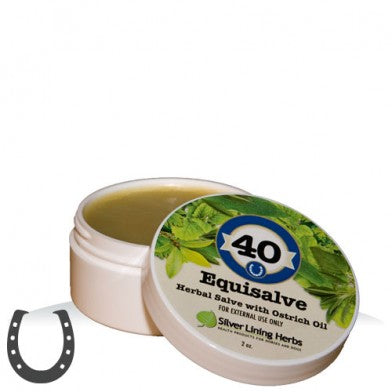Alternative Remedies For "Scratches" in Horses
I went to ride a client's horse the other day and noticed his rear pasterns were puffy. On closer look I discovered he had scabs on his pasterns; raw, oozing, scabs that really hurt. He was super sensitive to the touch and very defensive when I started to clean the area away. Ugh, the dreaded muddy paddock scratches!! Horse "scratches" is a bacterial horse skin infection that most commonly affects the area at the back of the pastern and heel.  But it can be found pretty much anywhere a horse's lower foot contacts the wet conditions.
But it can be found pretty much anywhere a horse's lower foot contacts the wet conditions.  It is usually caused by trauma to the skin created by wet or muddy footing. Horses with long fetlock hair are most susceptible; but any horse can get it. White socks seem to get it more often. Horses that stand in mud, get their legs washed often (without fully drying) and those with compromised immune systems are most susceptible. Most cases are caused by the Staphylococcus bacteria. Once the horses' skin gets irritated by the wet conditions, it sets up a situation for the bacteria (and other fungi) to thrive. Moisture rich environments throw out the welcome mat to bacteria and fungi. Scratches causes the formation of scabs and skin cracks which can be extremely painful and some horses can even go lame. Just so it's clear, there are some other common names for this same condition:
It is usually caused by trauma to the skin created by wet or muddy footing. Horses with long fetlock hair are most susceptible; but any horse can get it. White socks seem to get it more often. Horses that stand in mud, get their legs washed often (without fully drying) and those with compromised immune systems are most susceptible. Most cases are caused by the Staphylococcus bacteria. Once the horses' skin gets irritated by the wet conditions, it sets up a situation for the bacteria (and other fungi) to thrive. Moisture rich environments throw out the welcome mat to bacteria and fungi. Scratches causes the formation of scabs and skin cracks which can be extremely painful and some horses can even go lame. Just so it's clear, there are some other common names for this same condition:

 They contain many of the ingredients I mentioned, are all natural and safe to use on galls, open wounds, scratches, and rashes and plus they help fight fungal infection. BooBoo Butter contains all the essential oils you need and has an easy to use roll up applicator. Order them here Lastly, don't forget to soak all brushes, wash all saddle pads and towels, etc, with Thieves Household Cleaner to decontaminate everything! Hope this helps!! If you would like to purchase a digital download of this article for .99 click here Peace and good rides,
They contain many of the ingredients I mentioned, are all natural and safe to use on galls, open wounds, scratches, and rashes and plus they help fight fungal infection. BooBoo Butter contains all the essential oils you need and has an easy to use roll up applicator. Order them here Lastly, don't forget to soak all brushes, wash all saddle pads and towels, etc, with Thieves Household Cleaner to decontaminate everything! Hope this helps!! If you would like to purchase a digital download of this article for .99 click here Peace and good rides,
 The Horse Hippie
~Laura
The Horse Hippie
~Laura
 But it can be found pretty much anywhere a horse's lower foot contacts the wet conditions.
But it can be found pretty much anywhere a horse's lower foot contacts the wet conditions.  It is usually caused by trauma to the skin created by wet or muddy footing. Horses with long fetlock hair are most susceptible; but any horse can get it. White socks seem to get it more often. Horses that stand in mud, get their legs washed often (without fully drying) and those with compromised immune systems are most susceptible. Most cases are caused by the Staphylococcus bacteria. Once the horses' skin gets irritated by the wet conditions, it sets up a situation for the bacteria (and other fungi) to thrive. Moisture rich environments throw out the welcome mat to bacteria and fungi. Scratches causes the formation of scabs and skin cracks which can be extremely painful and some horses can even go lame. Just so it's clear, there are some other common names for this same condition:
It is usually caused by trauma to the skin created by wet or muddy footing. Horses with long fetlock hair are most susceptible; but any horse can get it. White socks seem to get it more often. Horses that stand in mud, get their legs washed often (without fully drying) and those with compromised immune systems are most susceptible. Most cases are caused by the Staphylococcus bacteria. Once the horses' skin gets irritated by the wet conditions, it sets up a situation for the bacteria (and other fungi) to thrive. Moisture rich environments throw out the welcome mat to bacteria and fungi. Scratches causes the formation of scabs and skin cracks which can be extremely painful and some horses can even go lame. Just so it's clear, there are some other common names for this same condition:
- Grease Heel
- Greasy Heel
- Pastern Dermatitis
- Foot Rot
- Cracked Heels
- Dew Poisoning
- Mud Foot or Foot Rot

 They contain many of the ingredients I mentioned, are all natural and safe to use on galls, open wounds, scratches, and rashes and plus they help fight fungal infection. BooBoo Butter contains all the essential oils you need and has an easy to use roll up applicator. Order them here Lastly, don't forget to soak all brushes, wash all saddle pads and towels, etc, with Thieves Household Cleaner to decontaminate everything! Hope this helps!! If you would like to purchase a digital download of this article for .99 click here Peace and good rides,
They contain many of the ingredients I mentioned, are all natural and safe to use on galls, open wounds, scratches, and rashes and plus they help fight fungal infection. BooBoo Butter contains all the essential oils you need and has an easy to use roll up applicator. Order them here Lastly, don't forget to soak all brushes, wash all saddle pads and towels, etc, with Thieves Household Cleaner to decontaminate everything! Hope this helps!! If you would like to purchase a digital download of this article for .99 click here Peace and good rides,
 The Horse Hippie
The Horse Hippie


Leave a comment